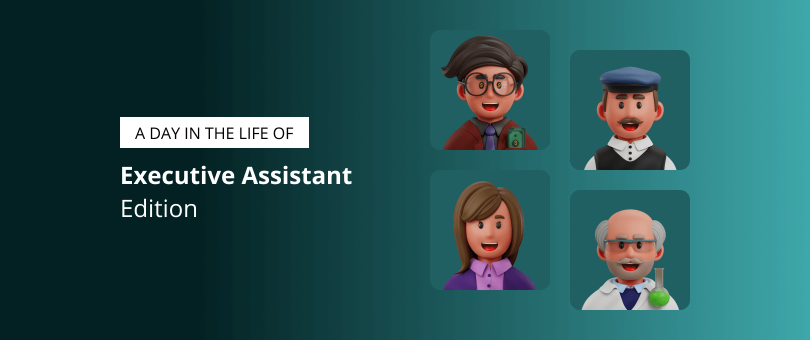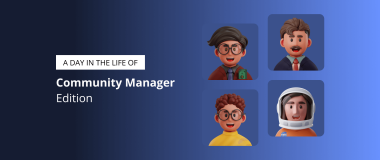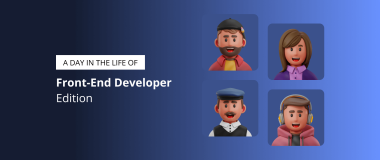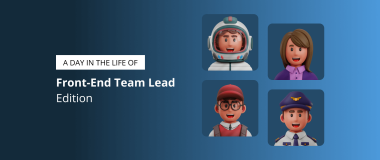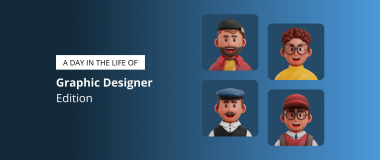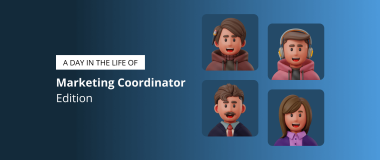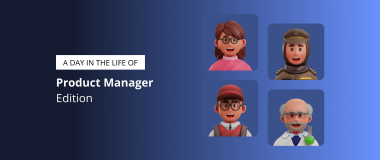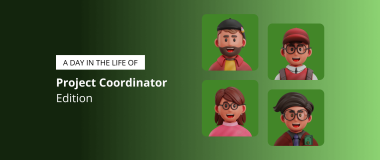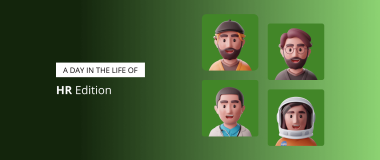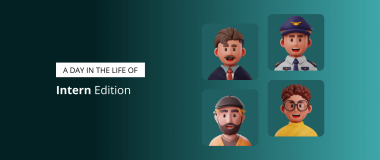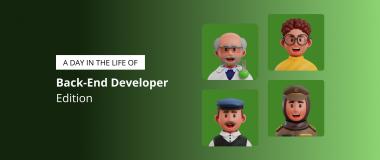Greetings and salutations, dear DevriX blog readers!
This time around, in “A day in the life of…”, we’ll be interviewing our executive assistant – Vladislav Penkov.
He’ll be sharing his personal opinion on working with the CEO of DevriX Mario Peshev, the differences between life in Bulgaria and Wales, and why teaching Chinese is a complex process.
Carry on reading.
A Day in the Life of an Executive Assistant
Hello, Vladi, thank you for this interview. For starters, can you share a bit about yourself?
I graduated from high school here in Sofia, majoring in Chinese and History. Then I moved abroad to live in Wales for four years, where I studied at the university of Aberystwyth, focusing on Business Information Technology. Afterward, I worked in retail and hospitality for about two years, and then I decided to come back and start my professional career in Bulgaria.
Cool. As someone who spent 4 years there – living and studying – what would you say are the main differences between life in Wales and Bulgaria?
Well, obviously, it’s way different economically. Socially, I would say, it’s also very different. People in Wales, and especially in the county I used to live in – Ceredigion – are mainly farmers, as it’s a county that relies on agriculture, so they were very kind, very nice people. They weren’t as direct as people in Sofia are. You wouldn’t get shouted at for no reason (laughing).
Also, they had this typical UK thing of being fake-nice, which I especially experienced, working in retail and hospitality. They would tell you something really rude in a really nice way, and if you would reply in the “Bulgarian way” (i.e., saying what you really think), you would get fired. The main differences, I would say, would be in the mentality.
So, would you say that it’s more peaceful in Wales?
For sure, yeah. I mean, being from Sofia, growing up in the capital of Bulgaria, and then moving to a place that had a population of like 20,000 people, of which 7,000 were university students… The entire town was as big as the neighborhood I grew up in. People would be like “Oh, no, we have to go to the other side of town”, and I’m like “Bro, that’s like 15 minutes walking distance”. I would wake up at 4:52 AM and go to work at 5 AM – it was amazing.
It was definitely way more peaceful. I would walk 20 minutes, and I would be in nature – the seaside, the hills with the sheep.


Would you say that you missed the hurried life here?
From time to time. The positive thing of living in Aberystwyth was that we all knew each other, and the negative was that we all knew each other (laughing). So, we had like two or three places to go, whereas growing up here, that was such a foreign concept to me. And then, coming back here, it was so nice seeing a building that had more than 3 or 4 stories, and a street that was wider than 5 meters, you know? (laughing).
Yeah, and strangers!
For sure – a lot of strangers, and a lot of noise.
My next question is regarding one of our core values – be a community citizen. Given that our work culture is quite unique here, in your experience so far, what are the best things about DevriX?
Oh yeah, well, addressing the community aspect of DevriX – that’s one of the values that actually drew me to this company. When I was recommended the company, it was one of the first things that I saw, because I, myself, am a lot into charity, and giving back. It’s something that I want to do moving forward in my life, especially since I have my own small business with my friend, where we teach Chinese, English, and Bulgarian ourselves.
So, having this monthly DX Charity Kitchen event is one of the top 3 things that I appreciate here.
Alright. Could you now take us through the journey of a day in the life of an executive assistant?
It’s very hard to say what typically happens, as I work with the person who is, not only, the CEO of DevriX, and the CTO of Brainjolt, but is also the CEO of his own consulting company Growth Shuttle.
Each day is unique. I come to work around 11 AM, as Mario works two shifts most of the time. Thus, coming into work later, allows me to assist him better. I check my emails, sort my to-do list, and then I compile a bunch of daily news for Mario, so he doesn’t have to go through it himself. It’s time efficient for him, and good for me, as well, as I like to keep up with the news myself.
After that, I check out the social media profiles of Growth Shuttle. Then, I check in with our Growth Shuttle team that works from the Philippines to see if everything is on track. We have a strict time schedule for posting content that we hope will turn readers into conversions.
If Mario buys any digital products, I make sure we migrate everything into our own servers and accounts. Then, we combine all the information that we need, while examining any existing customers. Next, if we advertise for some clients, Mario could ask me to do a quick template website, along with one of our graphic designers, to showcase our abilities.
Basically, anything that Mario needs to be offloaded, that isn’t urgent or a priority to him, he outsources to me, so that I can take care of it for him. Every day is quite different, which is something that I truly enjoy.
Nice, you do a lot of the heavy lifting?
I would say he does the heavy lifting, I do the light lifting.
You’ve been here for around 5 months now, working closely with our CEO Mario Peshev, how would you describe him, in a sentence? What type of person would you say he is?
I would say he’s an introverted person who is successfully trying to be extroverted. He’s very result oriented, a very understanding person. People usually get nervous from his absence of response, from time to time, but it’s just usually him prioritizing. He’s a very good teacher, I would say. I had a lot of questions when I started here, this being my first actual, professional job, and instead of just telling me what to do, we would walk through the process of what we’re doing, so it makes sense.
This has allowed me to develop my own decision-making in the future, so I don’t have to go through him every time. That is something which I really appreciate, as it’s not just spit-out information. He takes away from his own time for us to sit down with me and help me understand why we’re doing what we’re doing.
So, in a sentence, I would say: he’s a good teacher, and I just enjoy working with him, it’s fun. He’s sometimes stressed from his work, but I crack a lot of jokes, so I make him laugh from time to time.
That’s part of the unwritten rules of your position, I guess.
Certainly. I get to crack jokes until he either gets angry or he laughs.
Okay. Next question is about your self-proclaimed “video game addiction”. I can’t resist asking what you enjoy playing these games, and what are your all-time favorites?
Well, these days, considering I work full-time, and I am trying to run our language school on the side, I don’t play as many video games as I used to in my school days. Usually, I play 15-20 minute games of League of Legends with my friends, because it’s a very low effort game, where I can unleash all my anger and frustration.
When it comes to all-time favorites, if I were to break it down in genres, I think BioWare’s Mass Effect and Dragon Age have one of the best written stories, with Mass Effect being, for me, one of the best written space odysseys of all time.
One of the games I was most addicted to would be World of Warcraft, because of the community, and Minecraft, because it’s nostalgic. I was ten when it came out, so I was one of those little kids in love with the game.
Also, growing up with an older brother, we used to play a lot of strategy games – the Total War saga, Paradox’s games, and anything that would recreate historical events, as I’m a huge history buff, and it brings me a lot of satisfaction.
Cool. You mentioned a language school – how would you advertise that right now to someone who doesn’t know a thing about it?
Me and one of my best friends, the one I opened the school with, went through the educational system studying both English and Chinese. I’ve had to do all the tests, in order to enroll into university, so we’re familiar with the format. Moreover, I have a lot of active knowledge due to the communication with our English-speaking clients. Also, I used to live in Wales, so I know what the situation is like there.
When it comes to Chinese, that’s a more advanced topic, since right now, in Bulgaria, as a whole, the community of Chinese speakers and educators is very lacking. Our education, in Chinese, in school was below average, I would say, because it’s such a new subject. We’re trying to get a lot of people interested, not only in the language, but also in the culture. We want people to participate in events, so they can understand the way Chinese people think, the way they act, and the way they talk. Chinese is not like your ordinary European language, where you’ll have subject-verb-object sentence structure. It’s very different.
As Europeans, we all have a kind of similar way of thinking. In order to speak Chinese, you need to not only understand the words, the vocabulary, you also need to understand their culture. Why they use the words they are using, why they say you’re “eating medicine”, and not “drinking medicine” (laughing).
That’s what we want to highlight. Especially since my partner from our school – Bing Chen, is half-Bulgarian, half-Chinese, and grew up mostly with the Chinese part of his family. Even though he considers himself Bulgarian, he’s very much part of Chinese culture.
Sounds fascinating. So, basically it’s not just teaching a language, it’s teaching a way of life?
Absolutely. When you’re teaching a language, even a European language, you need to understand the people you’re trying to speak with. And this is especially important when you’re teaching a language that is further away from your cultural upbringing. If you don’t, you speak in the way that your language is structured, and just replace the words.
You’re also someone who enjoys travelling and going on adventures – could you share where you’ve been so far, what is the next destination, and where is the ultimate dream place you’d love to visit?
I’ve been to many, many places. I’ve visited all the Balkan countries, I’ve been to Slovakia, France, Germany, Italy, Spain, Belgium, the Netherlands, Ireland, Wales, England, Norway, Sweden…
Actually, next month I’m going back to Norway, this time to the south side, to the Vestland region.
Nice, and what about the dream destination – have you thought about it?
My short-term dream is, I would say, if I get enough money together, to go to Japan. It’s a country that I’ve always admired, and that I’ve read a lot about. I respect their perfectionism, and the effort that they put into every little thing they make – from their automobile industry to manga and anime. They seem to be taught to do everything to perfection, and to expect nothing less.
This, of course, takes a huge mental toll on you, and is the one negative thing about their culture, but still – the results are fascinating. I would really like to experience that first-hand.
Okay, well, I hope that dream comes true for you soon. As it has become obvious from our conversation so far, you have a wide variety of interests – computers, web development, photography, travelling, music, business, video games, etc., however what would you say that you see yourself doing with your life, career-wise?
The thing that attracts me the most has always been the idea of being a Jack of all trades. Since I was little, I realized that I’m perfectly average in a lot of things. I was never great at anything, but instead, I was very average to good in a lot of different things.
I would say that in the future, I would like to learn or improve on the things that I’m doing right now, which is balancing or creating a product for society, as we’re doing at DevriX, and educating the previous, the current, and the next generations, as I’m doing with the language school.
Maybe I’ll write a book one day. In the past year, I’ve definitely been into writing my own Dungeons & Dragons campaign. I would really look into developing that into a book, perhaps in Bulgarian. I would also like to play more music, buy some more instruments. Right now, I have only about 12 instruments…
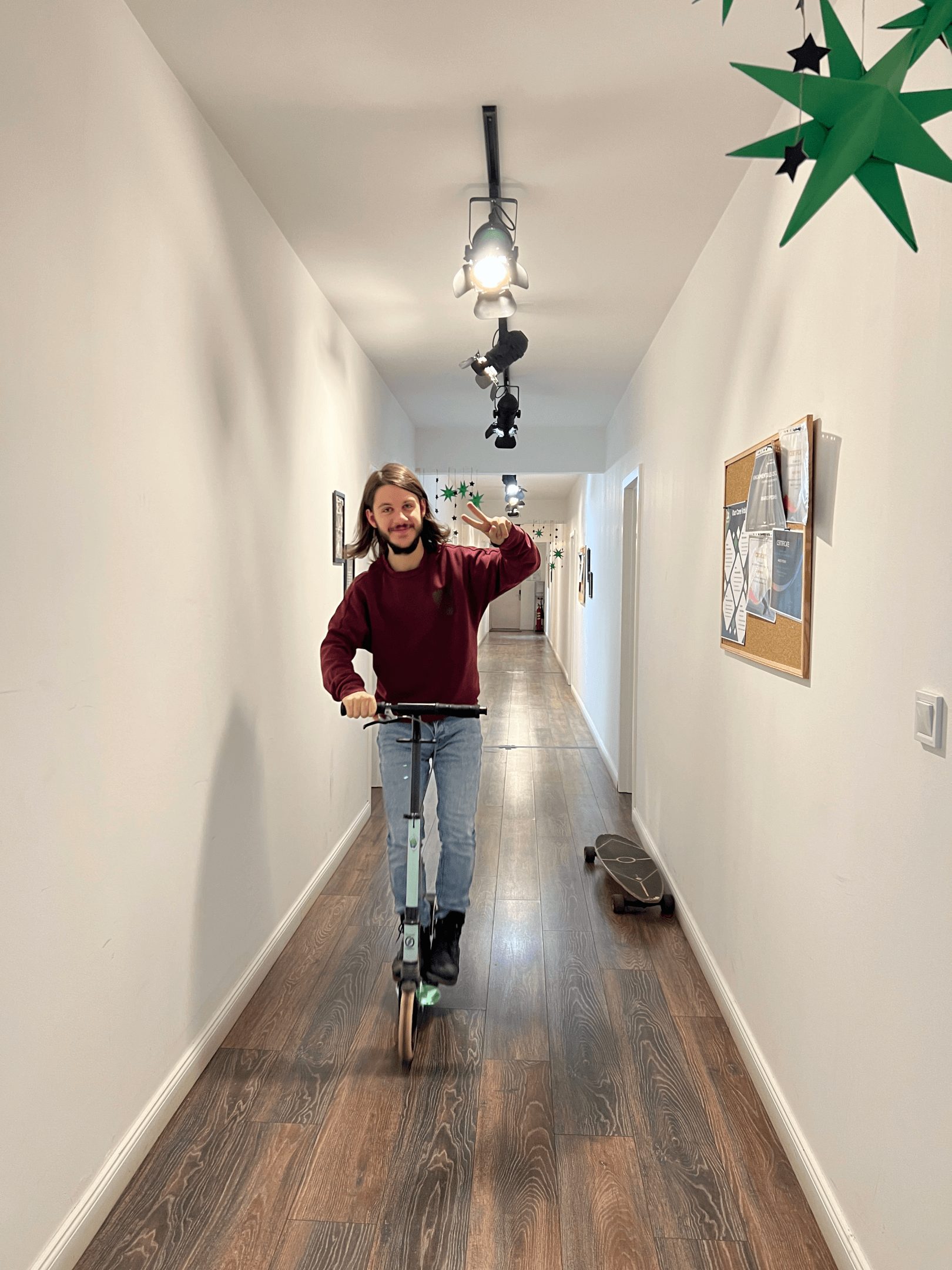
Only!
I want 25, yeah… (laughing). Then I can become my own orchestra. My apartment is a very entertaining sight for anyone that comes to visit. Guests usually grab like 5 instruments and try them to see which one they like the most.
Okay, ladies and gents, the whole F*N show – Vladi! My last question: if life gives you lemons, you would…?
I’d make Nestea lemon. Sadly, they don’t have it in every shop anymore, but I created an artificial demand, or maybe organic demand, in my local store. They used to have only two big bottles of Nestea lemon in stock, so I would buy them, then they wouldn’t have any ice tea for the next three weeks.
And I would buy them out every time, the same day the product came. So now it’s always in stock, all the time. I did a Capitalism, yeah (both laughing), so now I’ve managed to make my life more convenient, and the store next to me has Nestea.
That’s some good product placement…
By the way, we’re not affiliated with Nestea, unless Nestea wants to pay us to make their website 10 times better.
Thank you again for this interview, is there anything you want to add?
No, thanks. No comment.
Are you in need of a website that’s 10 times better than what you currently have? DevriX is just the partner you were looking for.
What Is It Like to Work With Vladi?
“The nature of my role is as diverse as it gets: from procurement, recruitment, sales support through PR initiatives, event management, interviews or podcasts, to R&D initiatives and developing high-level strategy for clients and leads. It’s virtually impossible to handle everything efficiently without a sidekick, keeping everything organized in Asana and sorted due to due dates efficiently. I’m glad that Vladi’s both perceptive and excited about the challenges of running a business, as well as streamlining the process for the entire org!”
“Working with Vladi is a pleasure! Vladi is a really fun and cool colleague, who’s always ready to help. He’s a professional and I know I can always rely on him for whatever task.”
“He has an unorthodox way of thinking, and a tendency to do the unexpected. He’s fun, chill, and cool – some people from the office should take notes from him on becoming better human beings.”
Enjoyed this interview? Don’t forget to read “A day in the life of…”
